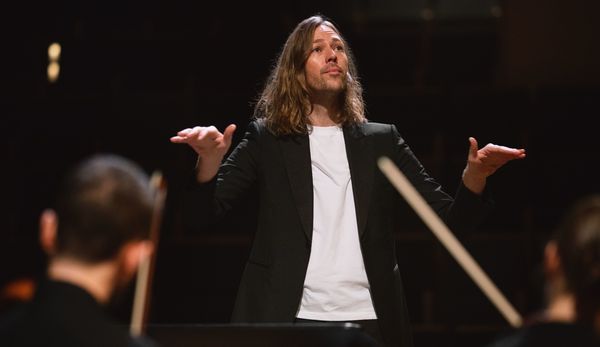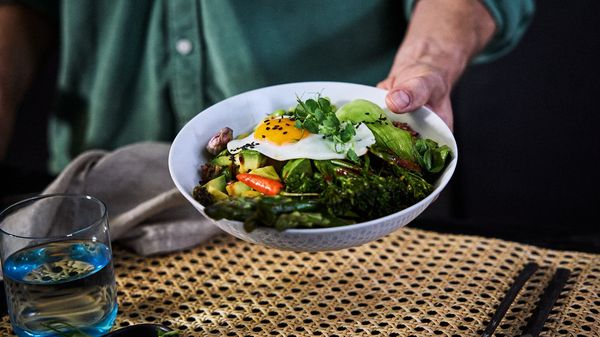
HEARING, SMELLING, LOOKING, FEELING, TASTING: ROBERT AMES SETS GREAT STORE BY SENSORY EXPERIENCES. THIS IS PRECISELY WHAT MAKES THE COMPOSER, MUSIC PRODUCER AND CONDUCTOR SO SUCCESSFUL. THE ENGLISHMAN CONDUCTED THE ORCHESTRA FOR THE SOUNDTRACK OF "ALL QUIET ON THE WESTERN FRONT", WHICH WAS AWARDED THE OSCAR FOR BEST FILM MUSIC. IN AN INTERVIEW, HE EXPLAINS HOW HE LETS HIS INTUITION GUIDE HIM IN HIS PROFESSION AS WELL AS IN THE KITCHEN.
Interviewer Susanne Gotzek
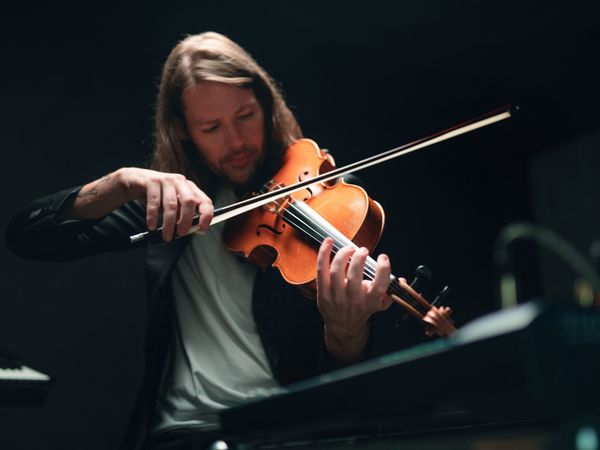
Robert, the London Contemporary Orchestra you and your partner founded is described as the “creative force behind some of the most amazing classical compositions and avant-garde pop music”. You yourself once said: “I feel the energy before everything comes.” How does music come about in your head?
It’s always different because I do a few different things musically. I conduct other people’s music, I orchestrate other people’s music and write my own as well. They’re all different processes, really. Composing is very in-the-moment for me. I tend to write quite quickly and then take ages to finish something. It takes me about ten per cent of the time to do 90 per cent of the composition, and then about 90 per cent of the time to finish off the last ten per cent of it. There is an initial rush of very fast writing, and then a much larger amount of time tweaking things until they feel right.
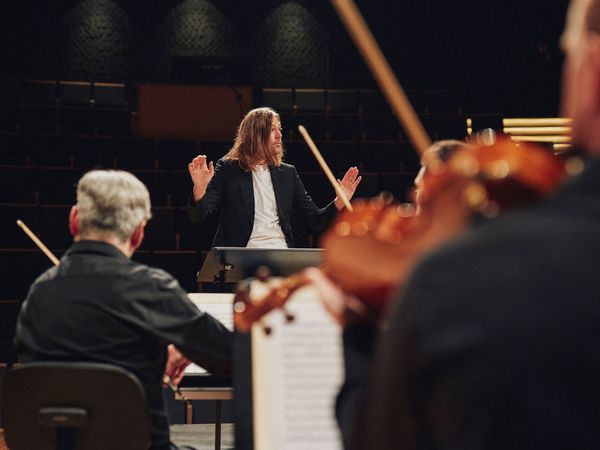
You conducted the orchestra for the film music that recently won the Oscar for best film score. Why did conducting the music that has been called “the cry against war” present such a challenge?
“All Quiet on the Western Front” was an interesting film to work on. It’s obviously a very difficult subject, and the film is not only intense, it is relentlessly intense. It doesn’t let you breathe very often. And it was Volker’s challenge to find a way the music could heighten the drama without frightening the audience away completely. The reason the score works so well and is so special, I think, is because he managed to find space and time to bring some lightness into the stories, and to pull together some of the strands of the personalities of specific characters.
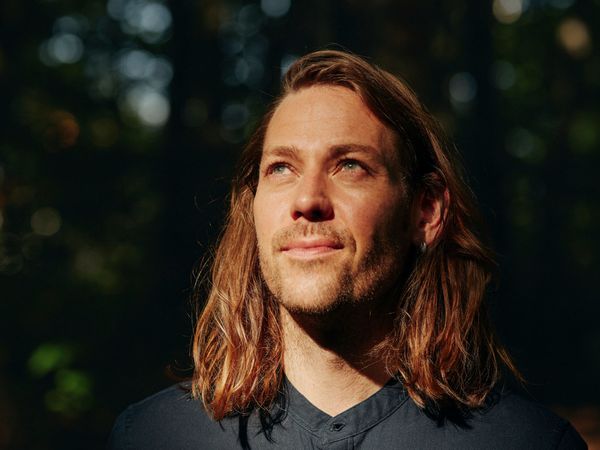
What does creativity mean to you?
Creativity is so much part of the fabric of what I do that I don’t ever think of myself as being actively creative. I live a life where, luckily, my work is my passion– and that is music. In my spare time, I listen to music. I write music when I’m working, I’ll be conducting music and I’ll be reading books that are interesting to me, watching films that are interesting to me. My partner is a musician as well, lots of my close friends are artists and musicians, and creativity is just in the fabric of the life I live. That might be why my writing process tends to be fast with a lot of work at the end: I try not to overthink it because I like to let it flow a little bit.
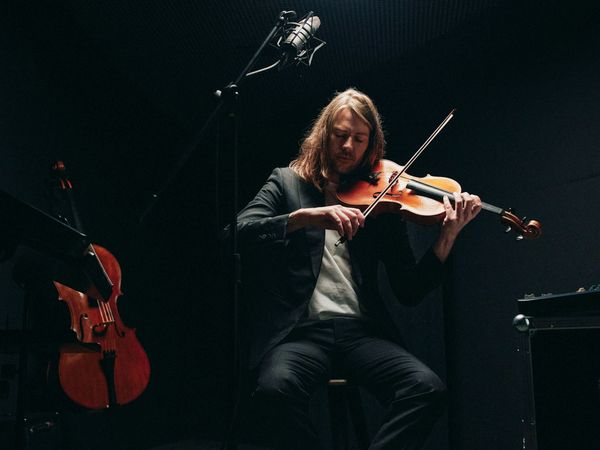
What does it take to create something truly unique?
I need the mental space to be able to create something that is completely mine, something where I’m not working for somebody else, or interpreting for somebody else, or trying to magnify the artistry of somebody else. A lot of the music that I wrote and that I am still playing with now happened during the first Covid wave. During the pandemic, there were no concerts, no recording sessions, for months on end. While it was very difficult for a lot of people, I had this empty headspace and I was lucky enough to have an outlet, through my music, that would support me enough to write. Trying to create that feeling now, when life is largely back to normal, is difficult, so writing my own music often has to take a back seat. But I’m trying to find ways to make it happen a bit more.
What is it about the unconventional, the unexpected, and the extraordinary that attracts you so much? Why do you crave it?
The really great thing about music, because it’s so wide-reaching, is that it’s basically impossible to get to the end of it. There are so many different things that you can combine, so many different things that you can do, so many genres, so many texts out there that it’s really impossible to get bored, impossible not to find something new to keep yourself excited.
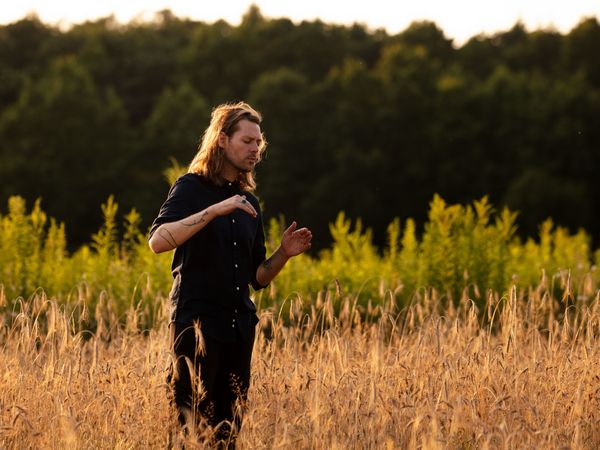
What are the most important sources of inspiration for your music?
For me, going through life with open eyes is the prerequisite for creating something new, for composing music that has never existed before. This openness provides the spark of creativity. Music is everywhere. Take walking through the forest, for example. The wind in the trees, the rustling of the leaves, the scent of the ground, all of this merges into a feeling that makes me hear a whole new melody in my head.
NEFF has adopted this attitude of openness. NEFF believes that openness is the prerequisite for creating something new, the spark of creativity in a way. What role does openness play in your daily life?
A big role. My musical interests have always been quite wide in terms of music as a culture. Growing up, I was part of the Napster and music download generation. I have really happy, early memories, as a youth, of going on Napster and downloading Brahms, downloading Stevie Wonder, and listening to all of this music in no particular order, and chatting to my friends who were doing it at the same time. That feeling of being able to skip and jump between different genres has stayed with me and is still very much part of my practice today.
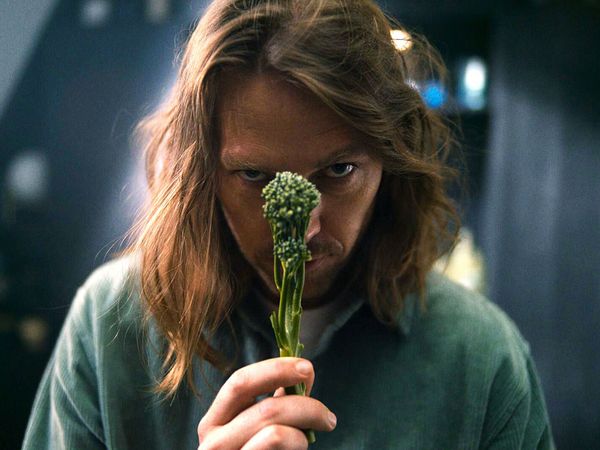
Where do you personally see the connection between your creative discipline, your creative passion, and your passion for cooking?
What I like most about composing is the mixing and remixing into something completely new – finding a flow, finding a rhythm. Intuition is also important when cooking, as is the creative flow, which follows a dramaturgy similar to music – culminating in the finished dish and eating together.
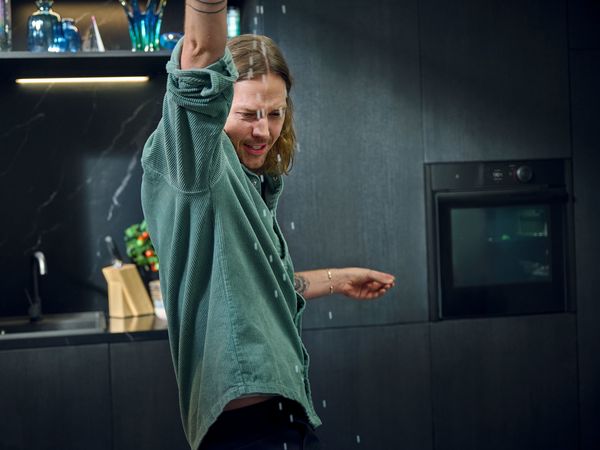
How and where do you find inspiration for your cooking, what do you experiment with?
I go through different stages of being into different things, and it’s often connected to the travelling that I do. I’ve just been on holiday in Greece, so my fridge is full of Greek-influenced food at the moment. The holiday before that was spent in Italy, so I was just really obsessed with finding ingredients like fresh tomatoes and good mozzarella and doing interesting things with pasta. It’s always changing.
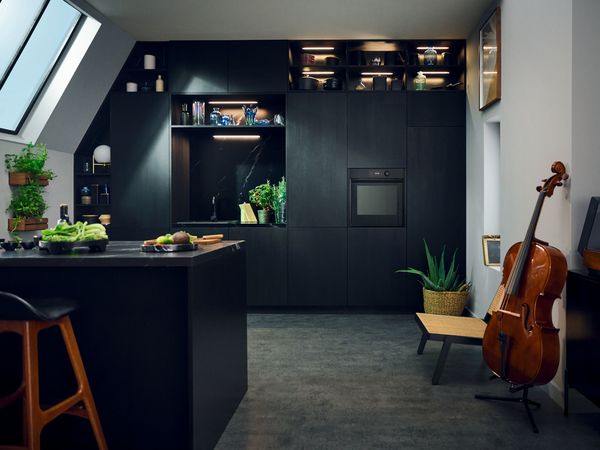
The kitchen is changing. It is now given a different role in society. Back in the day it was this closed room and was only used at certain times but now, with open plans, open layouts of houses, the kitchen has become a much more important room in the house. So, what is your view – what kind of place should the kitchen be nowadays?
I think a modern kitchen is a communal place. It’s where families come together and spend time, especially in a modern society. We’re all so busy all the time, the last bit of family time is eating together. That obviously stretches out into the time you’re cooking, so if you’ve got a nice open-plan kitchen, the sense of community is reinforced. I used to live in the Peak District, which is a beautiful part of the UK, and we had an open-plan kitchen and we used to basically spend all of our time in that place, we barely used the living room. But I live in a flat in London now, where the kitchen is a tiny room just off the living room, and I really miss being able to chat to others while cooking and that kind of thing.
